|
Books Should Be Free Loyal Books Free Public Domain Audiobooks & eBook Downloads |
|
|
Books Should Be Free Loyal Books Free Public Domain Audiobooks & eBook Downloads |
|
Poetry |
|---|
|
Book type:
Sort by:
View by:
|
By: William Blake | |
|---|---|
 Poems of William Blake
Poems of William Blake
Songs of Innocence and of Experience: Shewing the Two Contrary States of the Human Soul are two books of poetry by the English poet and painter, William Blake. Although Songs of Innocence was first published by itself in 1789, it is believed that Songs of Experience has always been published in conjunction with Innocence since its completion in 1794. Songs of Innocence mainly consists of poems describing the innocence and joy of the natural world, advocating free love and a closer relationship with God, and most famously including Blake’s poem The Lamb... | |
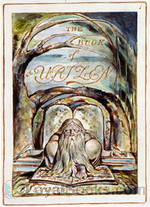 The First Book of Urizen
The First Book of Urizen
The Book of Urizen is one of the major prophetic books of the English poet William Blake, illustrated by Blake’s own plates. It was originally published as The First Book of Urizen in 1794. Later editions dropped the word “first”. The book takes its name from the character Urizen in Blake’s mythology, who represents alienated reason as the source of oppression. The book describes Urizen as the “primeaval priest”, and describes how he became separated from the other Eternals to create his own alienated and enslaving realm of religious dogma... | |
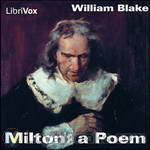 Milton: a Poem
Milton: a Poem
Milton: a Poem is an epic poem by William Blake, written and illustrated between 1804 and 1810. Its hero is John Milton, who returns from heaven and unites with Blake to explore the relationship between living writers and their predecessors. While on earth, Milton also unites with his feminine aspect, Ololon. The poem describes progress toward the apocalyptic union of living and dead, internal and external reality, and male and female. . | |
By: Stephen Crane (1871-1900) | |
|---|---|
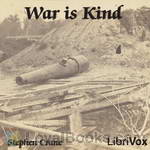 War is Kind (collection)
War is Kind (collection)
Published in 1899, just a year before his death, War Is Kind by Stephen Crane evokes again the dark imagery of war which made his fortune in The Red Badge Of Courage. Unlike that book, this collection leaves the battlefield itself behind to explore the damage war does to people’s hearts and minds. Reeking of dashed hopes, simultaneously sympathetic with the victims of war and cynical about the purposes of war, Crane implicitly criticizes the image of the romantic hero and asks if Love can survive... | |
By: Plato (428-347) | |
|---|---|
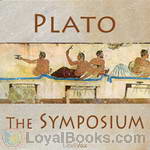 The Symposium
The Symposium
The Symposium (Ancient Greek: Συμπόσιον) is a philosophical book written by Plato sometime after 385 BCE. On one level the book deals with the genealogy, nature and purpose of love, on another level the book deals with the topic of knowledge, specifically how does one know what one knows. The topic of love is taken up in the form of a group of speeches, given by a group of men at a symposium or a wine drinking party at the house of the tragedian Agathon at Athens. Plato constructed the Symposium as a story within a story within a story... | |
By: Edmund Spenser (c.1552-1599) | |
|---|---|
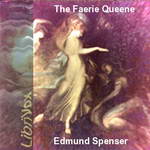 The Faerie Queene
The Faerie Queene
“The First Book of the Faerie Queene Contayning The Legende of the Knight of Red Crosse or Holinesse”. The Faerie Queene was never completed, but it continues to be one of the most beautiful and important works of literature ever written. Spenser wrote it as a paean to the Virgin Queen Elizabeth, and to the golden age which she had brought to England. Sponsored by Sir Walter Raleigh and commended by the foremost literary minds of his day, Spenser’s book remains one of the crowning poetic achievements of the Elizabethan period. | |
 Amoretti: A sonnet sequence
Amoretti: A sonnet sequence
The Amoretti (meaning little love poems) is a sequence of 89 sonnets written in the tradition of the Petrarchan sonnets, a popular form for poets of the Renaissance period. Spenser’s sequence has been largely neglected in modern times, while those of his contemporaries William Shakespeare and Sir Philip Sidney have been acclaimed. However, because of the artistic skill, along with the emotion and the humor exhibited, these poems deserve a broader hearing, even though they may be somewhat difficult for the present-day reader, partly through Spenser’s love for words and expressions that were already archaic in his time... | |
By: John Milton (1608-1674) | |
|---|---|
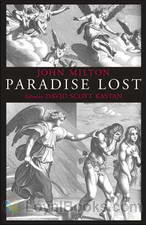 Paradise Lost
Paradise Lost
Magnificent in its scale and scope, this monumental poem by the blind poet John Milton was the first epic conceived in the English language. It describes an omniscient, all powerful God, the Fall of Man, the Temptation in the Garden of Eden, the disgraced angel who later becomes known as Satan, the Angelic Wars fought by Archangels Michael and Raphael and the Son of God who is the real hero of this saga. The poet John Milton was more than sixty years old when he embarked on this immense work of literary creation... | |
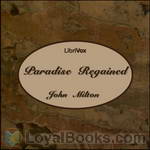 Paradise Regained
Paradise Regained
Paradise Regained is a poem by the 17th century English poet John Milton, published in 1671. It is connected by name to his earlier and more famous epic poem Paradise Lost, with which it shares similar theological themes. Based on the Gospel of Luke’s version of the Temptation of Christ, Paradise Regained is more thoughtful in writing style, and thrives upon the imagery of Jesus’ perfection in contrast to the shame of Satan. | |
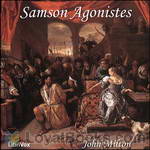 Samson Agonistes
Samson Agonistes
“The Sun to me is darkAnd silent as the Moon,When she deserts the nightHid in her vacant interlunar cave.”Milton composes his last extended work as a tragedy according to the classical Unities of Time, Place and Action. Nevertheless it “never was intended for the stage” and is here declaimed by a single reader.Samson the blinded captive, in company with the Chorus of friends and countrymen, receives his visitors on their varying missions and through them his violent story is vividly recalled... | |
By: Johann Wolfgang von Goethe (1749-1832) | |
|---|---|
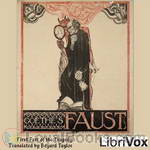 Faust, Part 1
Faust, Part 1
Faust is the protagonist of a classic German legend; a highly successful scholar, but also dissatisfied with his life, and so makes a deal with the devil, exchanging his soul for unlimited knowledge and worldly pleasures.Johann Wolfgang von Goethe's Faust is a tragic play in two parts. It is Goethe's most famous work and considered by many to be one of the greatest works of German literature.This first part of Faust is not divided into acts, but is structured as a sequence of scenes in a variety of settings. After a dedicatory poem and a prelude in the theatre, the actual plot begins with a prologue in Heaven and Scene 1 in Faust's study. | |
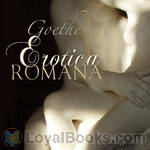 Erotica Romana
Erotica Romana
Also known as the "Roman Elegies," Erotica Romana is von Goethe's literary tribute to human sexuality and eroticism. Written in 24 elegies to emulate classical Roman elegy writers such as Tibullus, Propertius, and Catullus, von Goethe creates a lyrical work of art that has often been subject to censorship. | |
 May Song
May Song
Johann Wolfgang von Goethe was a German writer and statesman. His body of work includes epic and lyric poetry written in a variety of metres and styles; prose and verse dramas; memoirs; an autobiography; literary and aesthetic criticism; treatises on botany, anatomy, and colour; and four novels. In addition, numerous literary and scientific fragments, more than 10,000 letters, and nearly 3,000 drawings by him are extant. | |
By: Emily Dickinson | |
|---|---|
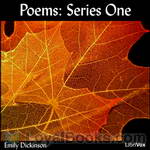 Poems: Series One
Poems: Series One
Renowned poet Emily Dickinson (1830 – 1886) wrote many many poems. This collection, “Poems: Series One”, presents the first installment of the complete poetic works of Miss Emily Dickinson. It is broken into four parts: Life, Love, Nature, and Time and Eternity. The verses of Emily Dickinson belong emphatically to what Emerson long since called “the Poetry of the Portfolio,”–something produced absolutely without the thought of publication, and solely by way of expression of the writer’s own mind. The poetry found here is then entirely honest, and indicative of the authors true feelings. | |
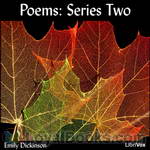 Poems: Series Two
Poems: Series Two
"The eagerness with which the first volume of Emily Dickinson's poems has been read shows very clearly that all our alleged modern artificiality does not prevent a prompt appreciation of the qualities of directness and simplicity in approaching the greatest themes,—life and love and death. That "irresistible needle-touch," as one of her best critics has called it, piercing at once the very core of a thought, has found a response as wide and sympathetic as it has been unexpected even to those who knew best her compelling power. This second volume, while open to the same criticism as to form with its predecessor, shows also the same shining beauties." | |
By: R. F. Murray (1863-1894) | |
|---|---|
 Wasted Day
Wasted Day
Robert Fuller Murray was a Victorian poet. Although born in the United States, Murray lived most of his life in the United Kingdom, most notably in St Andrews, Scotland. He wrote two books of poetry and was published occasionally in periodicals. | |
By: Robert Frost (1874-1963) | |
|---|---|
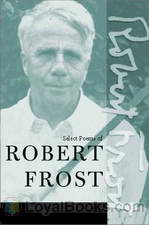 Selected Poems
Selected Poems
“Good fences make good neighbors...” If, as a reader, this is one line you do remember, then the poet Robert Frost would have fulfilled his purpose. The highest goal of a poet, he claimed, was to “lodge a few poems where they would be hard to get rid of...” Unforgettable lines and indelible memories are connected with our encounters with America's best-loved and most popular poet. His wonderful pictures of rural life and the deeply philosophical insights they offer remain with us long after many others have faded... | |
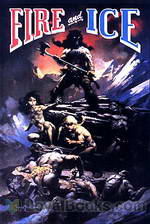 Fire and Ice
Fire and Ice
Written by one of the most significant American poets, Fire and Ice proficiently tackles the continuous query about how the world will cease to exist, whether it will go up in flames, or succumb to the cruelty of ice. First published in Harper’s Magazine in 1920 and later included in his acclaimed anthology New Hampshire, Frost effectively employs the use of simple, yet evocative language that assigns each syllable a significant purpose in the poem, while simultaneously concentrating on a perplexing topic... | |
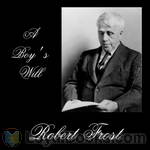 A Boy's Will
A Boy's Will
Robert Frost preferred to describe the New England countryside using everyday language. He used both as tools to explore world views and life philosophies. A Boy's Will was his first poetry anthology. | |
By: Edgar Lee Masters (1868-1950) | |
|---|---|
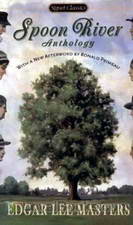 Spoon River Anthology
Spoon River Anthology
Two hundred and twelve residents of a small town tell their stories without fear of recrimination or ridicule. The only difference is that they're all dead! The two hundred and forty-four poems that form the Spoon River Anthology by Edgar Lee Masters is really a series of epitaphs about the citizens of a fictional town called Spoon River and deals with the “plain and simple annals” of small town America. Edgar Lee Masters grew up in a small town in Illinois. His father's financial problems forced the young Masters to abandon ideas of college and take up a job instead... | |
By: William Butler Yeats (1865-1939) | |
|---|---|
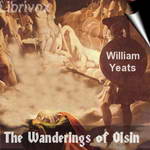 The Wanderings of Oisín
The Wanderings of Oisín
This narrative poem is composed in three parts, and consists of a dialogue between the aged Irish hero Oisín and St. Patrick. Oisín relates his three-hundred year sojourn in the immortal isles of Faerie. In the isles, Oisín married the beautiful Sidhe Niamh: together they traveled, feasted, and quested. At last Oisín succumbs to the temptation to return and visit the lands of mortal men: inadvertently slipping from his faerie horse, his body touches the ground and instantly puts on the flesh of a decrepit old man. Oisín describes various islands and what he did there: contrasting his noble deeds with the degenerate weakness of the present generation. | |
By: Henry Wadsworth Longfellow (1807-1882) | |
|---|---|
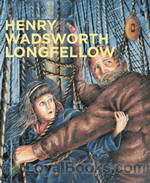 Henry Wadsworth Longfellow Collection Vol. 001
Henry Wadsworth Longfellow Collection Vol. 001
A collection to celebrate Henry Wadsworth Longfellow’s 200th birthday, on 27th February, 2007. | |
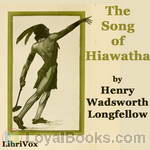 Hiawatha
Hiawatha
I sing the Song of Hiawatha,Brave of heart and strong of arm.Daughter’s son of old Nokomis,Fathered by the harsh West Wind. With its regular, beating rhythm, the Song of Hiawatha has often been parodied, but in truth, it is a powerful, emotional epic; a hero’s life, his loves and suffering. The legends and traditions of the North American Indian swirl together through the tale like a mountain stream, tumbling white over the rocks, and caressing the mossy tree roots. | |
 Evangeline
Evangeline
Evangeline is one of Longfellow’s most popular poems and was once a great favorite with the American people. For many years almost every school child studied this poem during the middle school years. Although the decline of the reputation of the once-idolized poet has also brought neglect to this classic, it is still a very touching and expertly written work of art. It is based upon the tragic expulsion of the French settlers from Acadia (located in the Canadian maritime provinces) during the French & Indian War (1754-1763)... | |
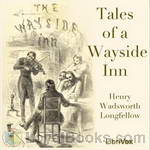 Tales of a Wayside Inn
Tales of a Wayside Inn
Mostly a collection of story-telling poems told by a group of friends in a tavern late one night. "Tales" includes the famous Paul Revere's ride, together with poems of many tales, countries and styles. | |
By: John Donne (1572-1631) | |
|---|---|
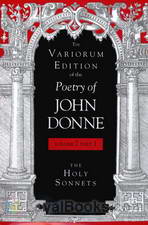 Holy Sonnets
Holy Sonnets
John Donne (1572 – March 31, 1631) was a Jacobean poet and preacher, representative of the metaphysical poets of the period. His works, notable for their realistic and sensual style, include sonnets, love poetry, religious poems, Latin translations, epigrams, elegies, songs, satires and sermons. His poetry is noted for its vibrancy of language and immediacy of metaphor, compared with that of his contemporaries. Towards the end of his life Donne wrote works that challenged death, and the fear that it inspired in many men, on the grounds of his belief that those who die are sent to Heaven to live eternally... | |
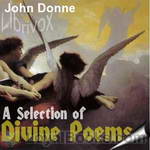 A Selection of Divine Poems
A Selection of Divine Poems
John Donne was an English Jacobean preacher, sometime lawyer, later in life a Member of Parliament and Royal Chaplain. Marrying for love against the wishes of his influential father-in-law; Donne's career was cast into shadow: forcing him to support his wife, Anne, as best he might under a specter of unforgiving penury. Despite such hardships - perhaps because of them - Donne's writings demonstrate a mastery of poetry layered with metaphysical meaning and mystery: which continues to delight and challenge modern-day readers... | |
By: George Gordon Byron, Lord (1788-1824) | |
|---|---|
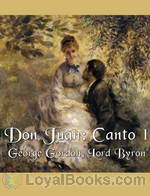 Don Juan: Canto I
Don Juan: Canto I
The legend of Don Juan is one that's been told and retold over the centuries by poets and novelists. His life has been the subject of operas, musicals and film. The earliest reference was in a fourteenth century Spanish play and compiled in book form in the seventeenth century. His life continued to fascinate writers like Moliere, Byron, Bernard Shaw, Pushkin, Shakespeare, Jose Saramago and musicians like Mozart, whose Don Giovanni is a brilliant work that still charms audiences and music lovers all over the world... | |
By: Samuel Taylor Coleridge (1772-1834) | |
|---|---|
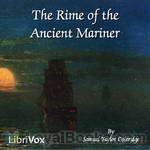 The Rime of the Ancient Mariner
The Rime of the Ancient Mariner
An exciting, compelling, and eerie ballad, The Rime of the Ancient Mariner focuses on the uncanny experiences of a sailor who has returned from a long sea voyage that has left him with a heavy burden to bear. Furthermore, the poem explores numerous themes including retribution, suffering, salvation, torment, nature, spirituality, and supernaturalism. The poem opens with the appearance of its mysterious protagonist, a skinny old man with a curious glittering eye, as he stops a young man who is on his way to attend a wedding... | |
By: William Wordsworth (1770-1850) | |
|---|---|
 Lyrical Ballads (1798)
Lyrical Ballads (1798)
Lyrical Ballads, with a Few Other Poems is a collection of poems by William Wordsworth and Samuel Taylor Coleridge, first published in 1798 and generally considered to have marked the beginning of the English Romantic movement in literature. The immediate effect on critics was modest, but it became and remains a landmark, changing the course of English literature and poetry. Most of the poems in the 1798 edition were written by Wordsworth, with Coleridge contributing only four poems to the collection, including one of his most famous works, "The Rime of the Ancient Mariner"... | |
By: Samuel Taylor Coleridge (1772-1834) | |
|---|---|
 Answer to a Child's Question
Answer to a Child's Question
LibriVox volunteers bring you 21 recordings of Answer to a Child's Question by Samuel Taylor Coleridge. This was the Weekly Poetry project for October 6, 2013. | |
By: Ambrose Bierce (1842-1914) | |
|---|---|
 Interpretation
Interpretation
LibriVox volunteers bring you 8 recordings of An Interpretation by Ambrose Bierce. This was the Weekly Poetry project for September 22, 2013. | |